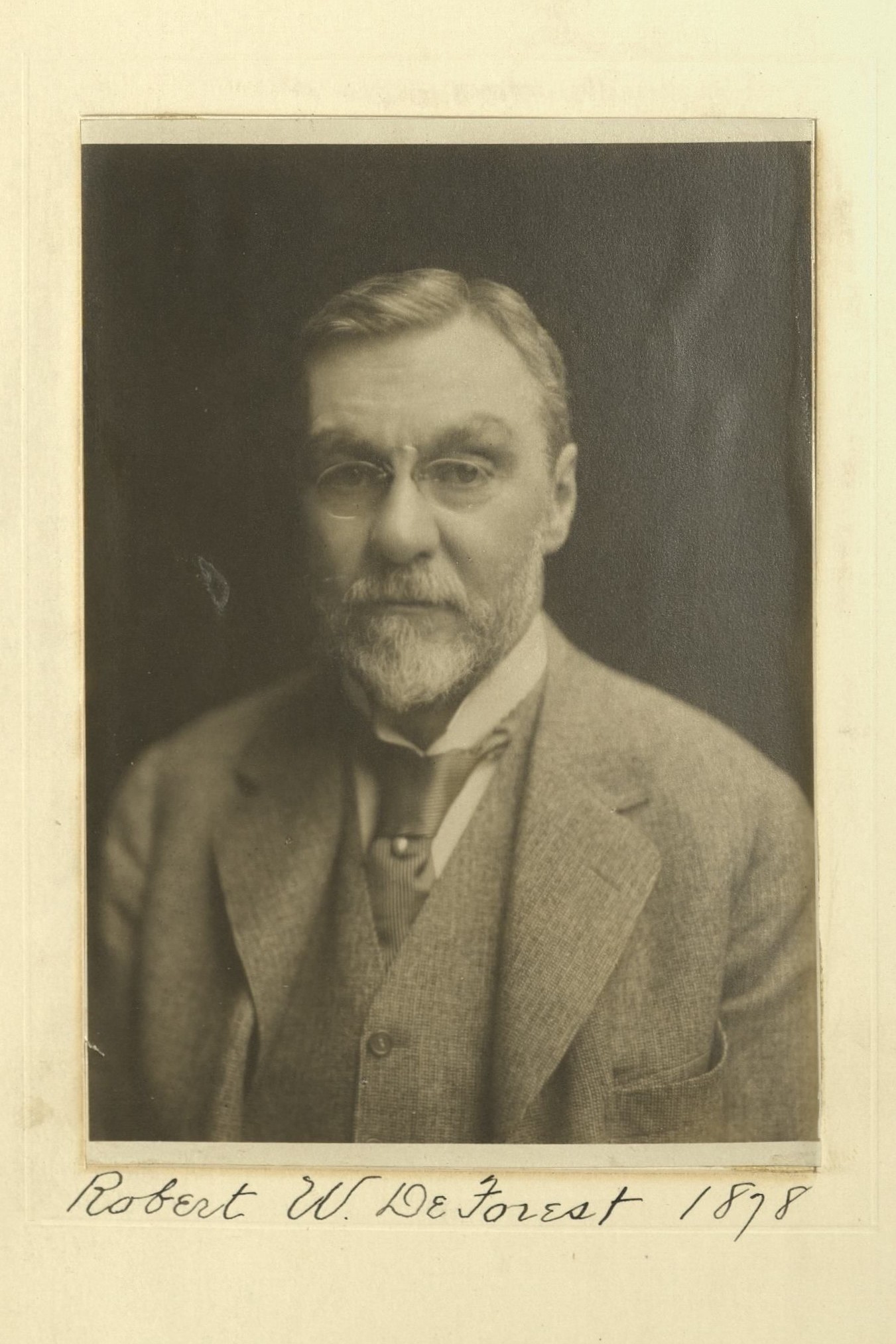Member Directory,
1847 - 1922
John M. Glenn
Director, Sage Foundation
Centurion, 1909–1950
Robert W. de Forest and Alfred T. White
Baltimore, Maryland
New York (Manhattan), New York
Age fifty
Catonsville, Maryland

Century Memorial
John M. Glenn was elected to the Century in 1909. He died on April 20, 1950.
He was born in Baltimore; and he remarked once that his first arrival in New York—when he was five years old—involved his stepping off a ferry boat with his father and mother, and finding himself in the middle of the Draft Riots.
He graduated from Washington and Lee University in 1879, and from the Law School of the University of Maryland in 1882. The memory of the nobility of General Lee and the gallantry and self-sacrifice of the boys of the Virginia Military Institute, to which his attention was directed at college, profoundly influenced him. He was endowed with vision to make great plans and with the tenacity to carry them out. He demanded no credits for himself, but gave much to others.
Named general director of the Russell Sage Foundation at its establishment in 1907 he served till 1931, and thereafter was a trustee till 1948. Early in this work he suggested to Mrs. Sage that the Foundation should be “first on investigation, and second on education.”
The Foundation’s income was spent largely for those two purposes, both during Glenn’s term of office and thereafter. He built up its child-welfare and child-placing services, established the study of women’s work in industry, and conducted many other activities of similar nature. His guiding principle was to choose good people and then back them up in their activities.
When World War I broke out, Glenn dedicated Leonard P. Ayres and his statistical staff to war service. He was aware that the kind of statistical service that staff could give was essential, and that it would be some time before the war organization itself could put such a staff together. He considered the Foundation was making a “contribution to the improvement of social and living conditions” by making this research possible.
As a person, Glenn was a quiet and reserved man, very thoughtful, but without any dramatic qualities.
George W. Martin
1951/1952 Century Association Yearbook



